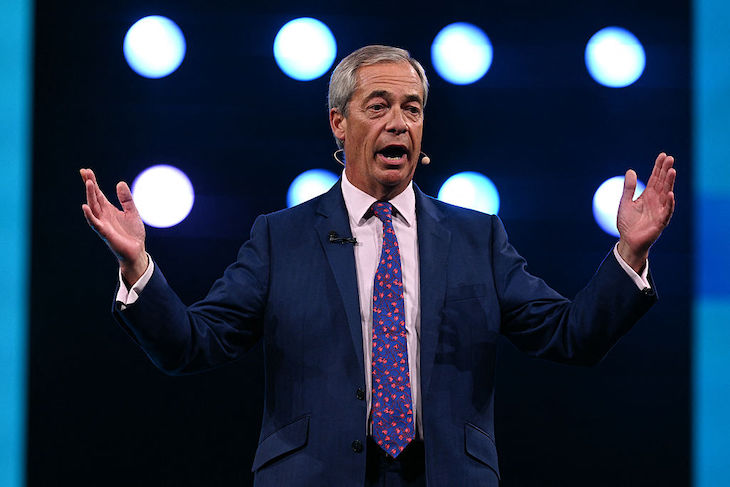The next election will not be won on immigration. Britain has already made up its mind. Voters want it controlled and reduced, full stop. That is why Nigel Farage’s party is head and shoulders clear in the polls. But if Reform’s pledge on immigration has been sold to the British public, the real question, as the party closes a boisterous conference this weekend, is what next?
None of these ideas are extreme. Many voters when polled see them as simple common sense
After all, while the party’s answer to long-ignored demands for border control is the right starting point, it cannot be the whole story. A credible party of government needs to show how it will mend the social fabric of broken Britain and improve people’s everyday lives.
The opportunity for Reform is to articulate a vision for renewal freed of the constraints of Tony Blair’s constitutional and social settlement that has shaped British politics for the last quarter-century. Specifically, Blair re-engineered the state in ways that made it harder for governments to make choices that unapologetically prioritised British citizens and interests.
Officials came to favour ‘international law’ over domestic statute; judicial interventions and quangos multiplied; welfare became a sprawling system of legal ‘entitlements’ rather than a ladder into work; family policy was treated as off-limits. Even Conservative prime ministers overwhelmingly governed within this framework, fearing accusations of being ‘nasty’ or worse, provincial, if they strayed beyond it.
The result was a politics that, on the whole, managed social breakdown rather than stopped it in its tracks. Parents were treated as taxpayers to be farmed rather than families raising the next generation. Education was measured in university entries, rather than creating opportunities in the productive British industries of the future. Housing and welfare benefits were allocated with little regard to contribution or national belonging. Ordinary Britons as a result often felt themselves coming last.
So far, the proposed advantages of rejecting the Blairite consensus have been confined to better migration control. But by pulling on this thread, Reform could unveil a more sweeping tapestry of British renewal, tearing away the constraints of the old order.
This could mean radically expanding the relief for British parents in our (currently individualised) tax system, helping thousands more people live out their dreams of starting a family. It could underpin a housing policy that gives much greater priority to young or homeless families with local roots, rather than a system strained by new arrivals.
It could shape a welfare system that restores pride in work, tackling the explosion in benefits for non-contributors, while cutting taxes for employers who take on young Britons shut out of the labour market. It could advance a vision for schools that spurns the longstanding obsession with “university at any cost”, instead focusing on streaming pupils much earlier for skilled technical roles.
None of these ideas are extreme. Many voters when polled see them as simple common sense. But to implement them requires dismantling the Blairite architecture and liberal biases that still dictate how policy is both made and implemented. Immigration control, therefore, should be not an end in itself; rather it is the foundation for a governing vision that restores pride in our communities, confidence in our schools, and security for families.
Of course, none of this matters if voters think Reform would blow up the public finances. Britain’s debt interest is now much higher than defence spending, taxes are at a seventy-year high, and the markets are increasingly jumpy after Labour’s welfare U-turn. Party officials are not unwise to wargame the scenarios a fiscal shock could bring, including an early election. But voters will only turn to them if they believe a Farage government would marry economic stability with material changes to their everyday lives.
That is the challenge facing Reform. The public already trust Nigel Farage on immigration. Increasingly they will want to know what he would do with the opportunity this creates. If he can show that control at the border unlocks a positive social vision at home, he can prove the Reform movement is more than a protest. He can show it is a government in waiting.







Comments